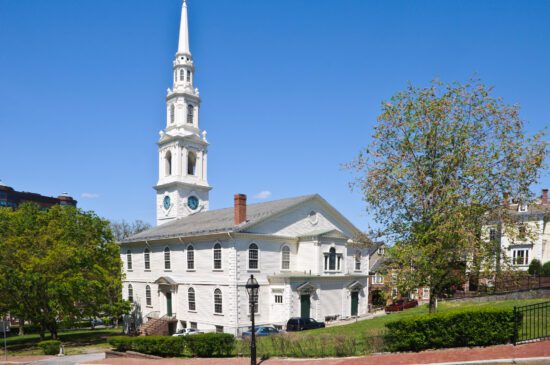I recently took my son to see “The LEGO Batman Movie,” and I was struck by its depth. Batman teams up with LEGO to show, not just the dark side of Gotham City’s villains, but the dark side of the dark knight. The LEGO cartoons always seem to depict Batman in a unique way from the other superheroes: as the loner. He likes to work alone and is portrayed as emotionally distant, egotistical and self-preserving. He’s afraid of being close or needing anybody in his life, especially emotionally. But by the end of the film, relationship and community trump individualism. Batman takes a long look inside himself and changes.
Individualism in America
Batman is one example of individualism. According to Britannica, individualism became a core part of American ideology by the 19th century. As James Bryce, British ambassador to the United States, wrote in The American Commonwealth in 1888: “Individualism, the love of enterprise, and the pride in personal freedom have been deemed by Americans not only their choicest, but [their] peculiar and exclusive possession.”
In her article for The Federalist, Heather Judd, traces back the history of individualism to the Enlightenment, where truth derived from reason and the self was exalted. Then, the Industrial Revolution centralized work in factories, which relied more on the individual for work instead of the family unit. Judd then brings the history to our present reality:
By the mid-nineteenth century, transcendentalists such as Emerson and Thoreau turned from rationalism but continued to extol the self-sufficiency of the individual. The twentieth and twenty-first centuries have dutifully followed the path they blazed, separating the individual from society, then family, and now even the self, as we question whether we have any inherent identity apart from our transitory desires and feelings.
Judd goes on to say that these historical shifts have brought our culture to a place where we navigate life from the perspective of the individual. These roots go down deep. Our country was established with the desire for independence and self-government, for good reason. And more than that, our first father and mother sought independence from their Creator. But that’s not the calling our heavenly Father has for us spiritually.
Finding community in person
The New York Times op-ed columnist, Ross Douthat, says that the age of individualism will be sticking around, yet, he strikes at this innate desire we all carry inside of us, “The human desire for community and authority cannot be permanently buried. . . . You only have to look at the place where millennials—and indeed, most of us—are clearly seeking new forms of community today. That place is the online realm.”
God made us to commune with him personally and corporately as his people, which is why we long for community.
It’s not wrong to seek community online, but we also need to seek community from fellow believers in our local churches (Eph. 4:11-13). We’ll have to put ourselves out there, be willing to be inconvenienced for the sake of others (1 Pet. 4:10), and spend our time and words in loving and wise ways (Eph. 4:15). We can’t walk this life in Christ on our own, because we’re part of a greater whole (Rom. 12:5). This is what our heavenly Father made us for: community and relationship. The Trinity is a striking example of communal relationship. God made us to commune with him personally and corporately as his people, which is why we long for community. And Jesus demonstrates that the only way to a flourishing relationship with the Father and others is through death to self (John 12:24).
Desiring relationship through marriage
Another way we see that we’re made for relationship is through marriage. Yet, we still take our cultural esteem for independence and autonomy into this one flesh union. In fact, individualism is often found flourishing in our homes. Before I was married, I was afraid I would lose myself in a man when I did get married. I didn’t want the Liz I knew before marriage to disappear. I thought I wouldn’t be my own individual, but just Josh’s wife. (I did struggle with that identity shift, but now I have a better grasp on that tension I felt.)
Yes, God made me a unique individual, and he made my husband a unique individual. But together, we are something else. We have a mix of differing passions, desires, hopes, dreams, interests and personality, but we’re also a unit. We’re diverse, but we’re unified in marriage and in Christ.
Harmony in community
According to one definition in Merriam-Webster, unity is a condition of harmony. I think this definition of unity is a great picture of community within the church and marriage. To have a musical harmony, there must be differing parts that come together; each instrument or vocalist does their best individually for the benefit and beauty of the whole piece.
Likewise, I didn’t lose myself in a man when I got married—though I have changed in some ways. I became a part of something bigger than myself. The same is true when we’re adopted into God’s family through Christ (Eph. 1:5). We die to self in order to realize we’re part of a bigger story than our own individual stories. This doesn’t nullify our individual stories. On the contrary, it brings deeper meaning to them.
Our heavenly Father isn’t calling us to independence and autonomy in marriage or the church; he’s calling us to a unified community. When God brings diverse individuals together in the church through faith in Christ, and when he unites a sinful man and woman together in marriage, his glory is put on display, and we see a little bit more of his kingdom come, on earth as it is in heaven.










